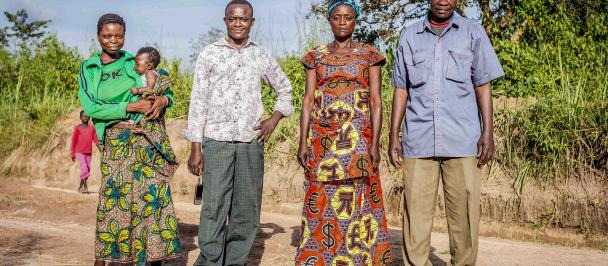Opening remarks by Asako Okai at the Business, Human Rights and Conflict Affected Regions: Towards Heightened Action, as part of UNDP Development Dialogues: Rethinking solutions to crisis in the Decade of Action.
Business, Human Rights and Conflict Affected Regions: Towards Heightened Action
April 8, 2021
Distinguished participants, colleagues, and friends,
Warm welcome to all. Please allow me to begin by thanking our keynote speaker, Professor Anita Ramasastry of the UN Working Group on Business and Human Rights, as well as our discussants for joining us to chart the next steps on the relationship between Business, Human Rights and Conflict.
Businesses can play a large role during security crises and in their aftermath. While they can make positive contributions and be engines of peace and development, they can also fuel conflict.
Recent events have reminded us of this. Deadly attacks by violent extremists in Mozambique in March this year in the northern part of the country have been linked to the exploitation of natural resources and related investments.
In Myanmar, further to the call of the UN Secretary General for a reversal of the coup, many concerned businesses spoke publicly about the shrinking of democratic space and reiterated their responsibility to respect international human rights standards. It is critical that words are followed by concrete actions that help to protect human rights and return the country on the path of democracy.
These include adopting measures to protect employees from the excesses of the security forces – a fundamental duty of care - and to ensure that business operations don’t lend legitimacy to those who are violating human rights. These obligations are clearly outlined in the Guiding Principles on Business and Human Rights.
Distinguished participants,
Businesses do have responsibilities, particularly in conflict settings. Milton Friedman’s old adage that the ‘business of business is business’ no longer holds.
The framework set out by the UN Working Group on Business and Human Rights demands us to apply a systemic approach to promote links between business activity, human rights abuses and conflict prevention. But we have not yet effectively captured this across the UN system. UNDP thus decided to take the lead on making those connections and to craft a coherent shared agenda.
In early March, UNDP organised its first annual Global Prevention in Action Forum, as the opening of this Development Dialogue series on Rethinking Solutions to Crisis in the Decade of Action. We brought together policy makers, practitioners and researchers for a forward-looking discussion on Prevention and Peacebuilding. This is a part of our efforts to articulate UNDP’s Prevention Offer, anchored in the Secretary-General’s Prevention Agenda and the imperative to achieve the SDGs. We are determined to make ourselves fit for providing integrated development solutions to complex problems based on data, analysis and evidence, and to be able to act early at scale with partners in the face of multi-dimensional risks and conflicts.
In the session focusing on the role of the private sector in conflict prevention and peacebuilding, many participants highlighted the validity of bringing Business & human rights perspectives into action. The key message from the discussion is as follows:
The private sector in conflict settings needs to be guided towards positive action for peace. We need to make sure that the private sector utilizes the “do no harm” approach and operate in a conflict sensitive manner to minimize their negative impact. For example, they should engage in human rights due diligence – a responsibility which is heightened during conflicts. They should seek out advice from actors such as the United Nations to understand conflict dynamics and participate in efforts to de-escalate crisis situations. They should engage with transitional justice processes once hostilities are over, undertake reparations and other measures if called on to show accountability for their actions. They can contribute in building a peaceful and inclusive society by influencing policies, for example against discrimination.”
The Working Group report calls on UNDP, and the broader UN family, to ensure that we do not work in silos and that we integrate awareness on business, human rights and conflict into our peace and security architecture. Through implementation of the Prevention Offer, and building on the key messages of the Prevention Forum, UNDP will strengthen its engagement with the private sector as well as with diverse partners to achieve this imperative.
In particular, UNDP, in a strong collaboration with the Working Group and in consultations with businesses, intends to develop a toolkit on heightened human rights due diligence, to guide businesses on how to respect human rights and manage risks in conflict settings. The Working Group also calls on all stakeholders to work together through a forum for exchanging best practices.
Distinguished participants,
The time is ripe for such cooperation. It is only through broad collaboration, within and outside our organization, that we can ensure that all businesses play a constructive role in conflicts and ensure future stability and prosperity for all.
Thank you for your attention.

 Locations
Locations




